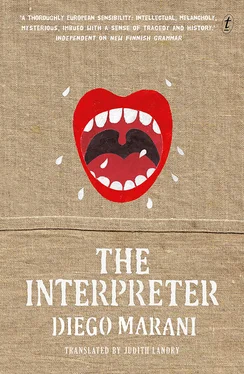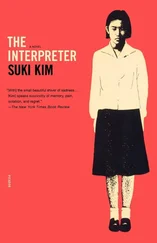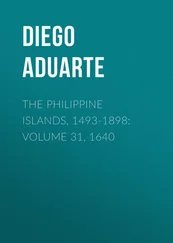‘Do you have difficulty in focusing on what you’re looking at? Do you sometimes suddenly find yourself right up against things which seconds before had seemed far away?’
‘I don’t know. But my vision does cloud over, and I do have long periods of distraction which I can’t then reconstruct.’
‘What is your mother tongue?’
‘French.’
‘Are other languages spoken in your family?’
‘My paternal grandparents were German, but I never knew them.’
‘Did your father speak German with you?’
‘Not often. He never taught it to me. He used German mainly when it was something serious, or to tell me off. I understood it, but I couldn’t speak it.’
‘Did you answer your father back when he scolded you in German?’
‘No. I never answered back. Indeed, it was to let me know that I mustn’t answer back that he spoke to me in German.’
‘Did your mother speak any language apart from French?’
‘She too could understand German, but she didn’t speak it.’
‘Not even with your father?’
‘No.’
Dr Barnung nodded, pursed his lips and pushed away the paper with his tiny writing. Clasping his hands again, he put his elbows on the table.
‘Mr Bellamy, in all probability, what you are suffering from is a serious linguistic disassociation. We’ll need to have other sessions to sort the matter completely, possibly using hypnosis, but it seems clear to me that a split between French and German has opened up in your unconscious: between the language you habitually spoke, and the one associated with serious occasions, and no answering back. This dichotomy has caused a disturbance which you have hitherto managed to keep under control, but, for some unknown reason, something has occurred which has upset your delicate psychic balance. Your mind can no longer tolerate this disconnection and is expressing its suffering by emitting incoherent sounds; it must have sensed that the root of the problem lies in your relationship with your parents. At one time such psychoses could only be tackled with the brutal chemistry of psychiatry, or with the slow and complex processes of psychoanalysis. In our clinic, we have developed forms of therapy which are less disruptive and more decisive, thanks to which you will not have to delve into your unconscious in search of painful buried memories. All that you will need to do to cure your disease is to monitor the tracks which French and German have traced in your mind, widening them where they have become constricted and stemming them in the places where they overflow. With the help of the sophisticated technique of linguistic hypnosis we use in this institute, you have excellent chances of recovery. Sometimes just a few weeks’ therapy is enough to relieve the symptoms, but for a lasting recovery more time is needed. You will have to be with us for some time, and submit yourself to our cure willingly and constructively if you truly want to get better.’
I glanced up at the doctor incredulously. For a moment I thought that I had fallen victim to an elaborate hoax. Perhaps our conversation had been a sort of dress rehearsal to which he had to subject unknown patients who turned up in his clinic in order to distinguish mythomaniacs from those who were really ill. I smiled awkwardly, to show him that I had seen through his ruse and that we could now proceed to the real interview. But that chill stare, the marble coldness of that angular body, which seemed to spread to every object in the room, made me realise that Dr Barnung was not joking, that he had never joked in his whole life, that for him every form of existence was a kind of madness to be cured. I would have liked to laugh in his face, to have accused him of being a charlatan and run out into the sunlight, away from that airless room. But deep down I felt that the doctor was right, that there was indeed something hanging open and unstitched within me; weakened by that invisible haemorrhage, my mind was becoming dimmer, spinning out of my control, slowly dissolving, making me easy prey to the other beings who now lived within me.
‘And what do your cures consist of?’ I asked meekly, a large knot forming in my chest.
‘Of language courses, Mr Bellamy. You see, for us each language has its own therapeutic value; we make the most of all its virtues. For curing the most extreme pathologies, we do not flinch from recourse to using the rarest and most difficult of all. Of course, the point of departure is always the patient’s mother tongue. Something that might be of benefit to a Chinese person might do you irrevocable psychic harm but have no effect at all upon a speaker of Bantu. So here in this clinic the patients are rigorously subdivided into separate linguistic departments. There can be nothing more harmful, at this stage in the cure, than exposing a patient to a language to which he is unsuited.’
‘And what is the language for me?’
‘The right language is determined by the pathology, but it may change as the cure proceeds, depending on the degree and speed of the recovery. In your case, what I’d suggest first is an intensive course of Romanian. You see, French and German are similar in the way they view reality, but in essence they are profoundly different. Latin and Germanic languages have something in common; they may influence one another and, with time, even understand each other, but they cannot mix. Romanian on the other hand is a happy synthesis between Slav and Latin; in Romanian, all that is rational about Rome, mingled with Mediterranean ebullience, becomes fused with irrational Slav passion and melts into the yearning melancholy of the steppe. Association with this balanced medley of language and spirit will do you good; it will help to heal the wound you currently feel throbbing in your mind. The healing process will take place unconsciously. By sinking deep into the meanders of your brain, the learning of this new language will make good the damage. Alongside the Romanian cure, however, I’d also suggest protracted German therapy, partly because for us German is a bit like aspirin, it’s good for everything: it clarifies thought processes, stiffens resolve and lays feelings bare. In your case, it is also one of the branches of your mind which you must rediscover and learn to live with: there is an atrophied residue of German within you which is clinging on to life, but which might also end up by obstructing your psychic development. I feel I must warn you that complications could arise. Disturbed by a sudden feeling of estrangement, at first your ego might take refuge in French and refuse to emerge from it, and then shock therapy would be required. We would have to subject you to a deeply alienating and, how can I put it, exotic linguistic soaking, with some sessions of Tungusic and Inuit to lure your ego out and oblige it to face up to the trauma it is suffering. Occasionally we might even have to have recourse to dead languages: the primitive structure of languages such as Matagalpa and Tuscarora can sometimes jolt the worn mechanisms of modern languages back into action, affording the mind the possibility of a fresh start. Therapeutically speaking, such steps are the equivalent of electric shock treatment. Don’t worry, though, we resort to such methods only in extreme cases.’
In the glancing light, Dr Barnung’s face was a red eyeless mask; he was moving his mouth in an unnatural fashion and to me his voice sounded distorted, like the sound of a radio whose batteries are running down. There was a pause; he moved away from the window and into the bluish half-light.
‘What would happen if I didn’t undertake a cure? I mean, what risks do I run if I leave it to my mind to find its way on its own?’
I was having trouble breathing, seized as I was with a sense of powerlessness which almost prevented me from inwardly expressing any astonishment at the doctor’s bizarre theories.
Читать дальше












